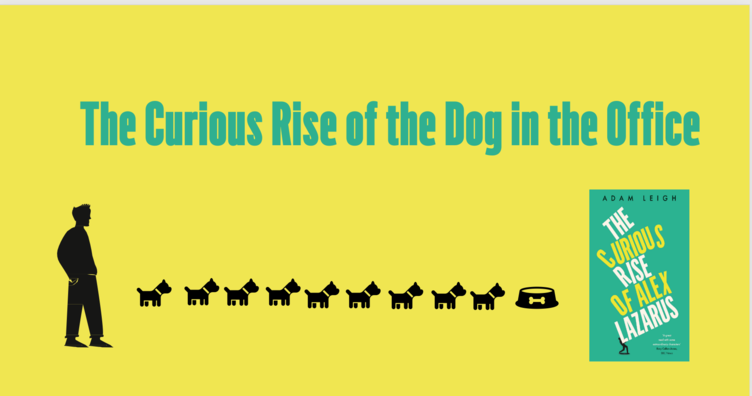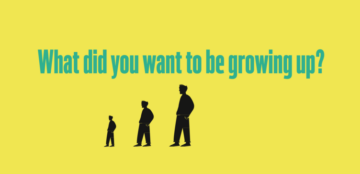I am a lovely bloke. Of that, there is no doubt.
I am polite at all times, even in my car to plonkers who go too slowly or my children when asking for money. I believe it is more important to ask someone how they are feeling, rather than talking about myself. I cry frequently; in films, at the news, when someone tells me my aftershave smells nice. I am philanthropic and will donate to the flimsiest of sporting challenge.
It’s just, I don’t really like dogs.
I mean for the avoidance of doubt, they can be extremely cute and who doesn’t like to tickle a tummy? I admire their loyalty and don’t want to eat one, although I have even eaten dog food when I worked on the Spillers advertising account years ago and boy did it make my fur shiny. It’s just that I don’t feel the need to be a dog owner, a sentiment echoed fortunately by my long-suffering wife who is even more adamant on the subject. Since my kids are effectively grown up, I feel it is a job well done by us ignoring two decades of pathetic whining for a puppy that they will inevitably not look after.
However, this gruff attitude puts me in in danger of being even more out of touch than ever. Having a business partner with whom you share a home with and no employees in the office, I do not have to face one of the great organisational business challenges that leaders are contending with at present. How do you get people back in the office and accommodate their need to bring in their dog?
It’s no secret that the pandemic has unleashed (apologies for the pun) a canine buying spree. Figures released by Pet Food Manufacturer’s Association attest to the rise in doggie acquisition: over a third (35%) of young adults (aged 24-35) have already embarked on lives as new pet owners, 2.1 m have collected a new pet in lockdown and 1.8 m are planning to add a pet to their household. Londoners are most likely to have added a pet to their family with almost one in five (18%) having picked up a pet and 13% planning to make a change.
Nicola Paly, PFMA Deputy CEO, whilst expressing excitement for all that extra pet food that will be consumed, nevertheless stresses the important observation: “we are keen to highlight the long- term responsibilities of bringing a pet into your life.” I mean we all know that a dog is not just for lockdown.
The implications are significant and reflective of how workplaces are going to change. It’s all very well for an organisation to have finally understood how to manage maternity and paternity leave and embrace the parental challenges of its workforce, but most of them didn’t get the memo about their canine responsibilities or if they did, the dog probably ate it.
When Steve Jobs returned to Apple in 1996 with something to prove, he banned dogs at the Cupertino head office, hellbent on proving his critics wrong and unwilling for there to be distractions. Since then, dog-friendly policies have been in place for some time in tech companies like Google and Amazon and are predicated on the perceived benefits which include relieving employee stress, promoting positive social interaction, decreasing staff turnover, attracting top-level talent, increasing morale and enhancing performance. There are downsides though which range from the irritation of dog-allergic or phobic colleagues to the noise and distraction that might be caused when people are trying to concentrate. Then there is a plethora of legal challenges that might ensue if Percy the Poodle takes a bite out of the ankle of Peter the Post Boy.
Organisations are now grappling with what a return to work might look like and how apparently nervous staff are going to be coaxed back into the office unwilling to forego the flexibility of their new daily schedule and now unable to leave their new pet unattended.
Working cultures have rightly become more progressive and liberal over the last ten years and flexibility has had many benefits. But is there a point at which commercial demands outweigh social welfare of staff ? Can the creation of a workplace that can cater for everyone’s needs strain the ability of a business to function effectively? This can be contextualised by the huge amount of data that points to productivity being enhanced away from the office. (McKinsey data suggesting an overall figure of 41% of people suggesting they were more productive out of the office.)
I recently spoke with a leader who stated that the need to accommodate the rise in dog ownership was the biggest operational challenge that the business faced to brings its people back into the office. But the headache simply reflects a change of habits that will not go away. How we work is now as important as what we do and the expectations of what should be a part of employment will become increasingly demanding.
So, to function effectively, you will need to see your organisations willingness to introduce dog bowls and baskets as a metaphor for its ability to embrace genuine change. After all, corporate development can now be measured in dog years, so fast will it take place and evolve over the coming years.
In the meantime, we will thankfully carry on in a dog-free at home and office, but I will of course buy a box of Bonios in case I have an important client meeting and I want to ingratiate myself with his or her adorable cockapoo. I may not be an animal lover, but I always prepared to go goeey-wooey over a puppy-wuppy to clinch a sale.
My first novel ‘The Curious Rise of Alex Lazarus’ is available at Amazon.co.uk



